How Do I Know if I Grind My Teeth?
21st Mar 2021
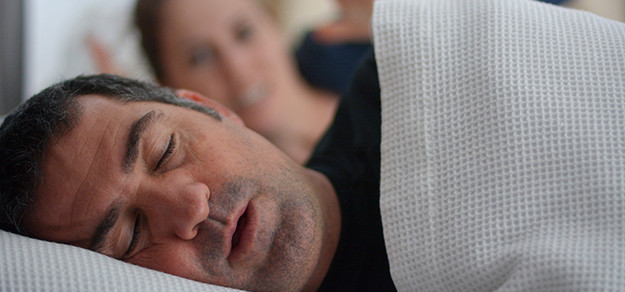
Tooth enamel is tough stuff. As the BBC notes, it's harder than steel. However, it isn't invincible. While enamel may be harder than steel, it's also more brittle. That quality leaves your teeth vulnerable to a variety of dental dangers. If the state of your smile has you researching reasons for worn or chipped teeth, you'll discover that there are lots of possibilities. Bruxism, or teeth grinding, is one of them. How do I know if I grind my teeth? If I do brux, what can I do to protect my smile and my oral health?
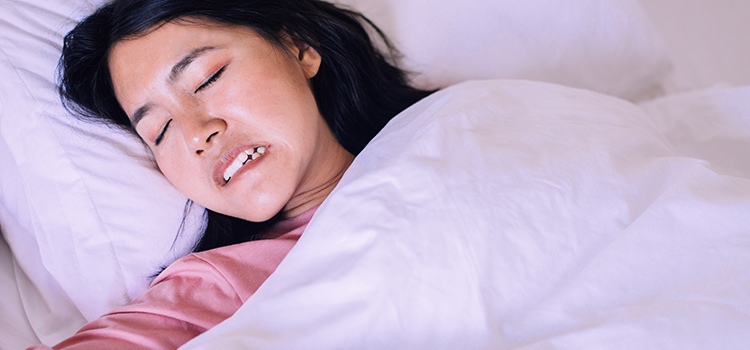
Bruxism Fundamentals
As Mayo Clinic explains, bruxism is a medical condition that prompts you to make certain unconscious movements. In this case, you grind or gnash your teeth. Since gnashing your teeth means bringing your teeth together quickly in an angry manner, those movements are fairly similar. In addition, bruxism can also cause you to clench your jaw tightly, pressing your teeth together with immense, and potentially destructive, force.
There are two types of bruxism. Awake bruxism or daytime bruxism occurs when you're awake. Sleep bruxism happens while you're sleeping. It's considered a sleep-related movement disorder. Because this behavior is unconscious, you may not be aware that you're bruxing. However, signs and symptoms can alert you to the issue so that you can seek treatment.
Related Articles:
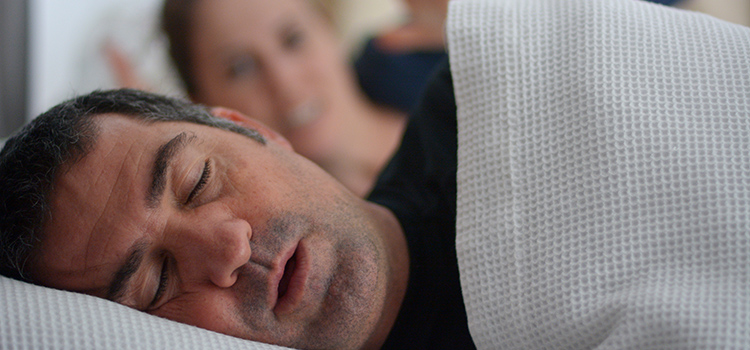
How Do I Know if I Grind My Teeth?
There are specific red flags that can warn you of a possible issue with bruxism. Which ones are most likely to catch the eye? That depends on who is paying attention. When it comes to spotting bruxism, there are three people who are likely to point out the problem:
- Your dentist: Bruxing tends to cause certain types of wear and tear. Your dentist can spot these patterns of tooth wear during a dental appointment.
- Your partner: Like fingernails on a chalkboard, teeth grinding has a soundtrack. It's typically described as an unpleasant grinding, squeaking, clicking, or chattering. Sleep bruxism is often blamed for disrupting sleep, and these sounds may be part of the reason. They wake your partner. In turn, your grumpy partner prods you to roll over, hoping that will stop the audio assault.
- You: Sometimes, an individual realizes that they have bruxism because they recognize the symptoms. In this situation, it's wise to make an appointment with your dentist. It's a smart way to get your hunch confirmed and seek guidance about your condition and treatment for it.
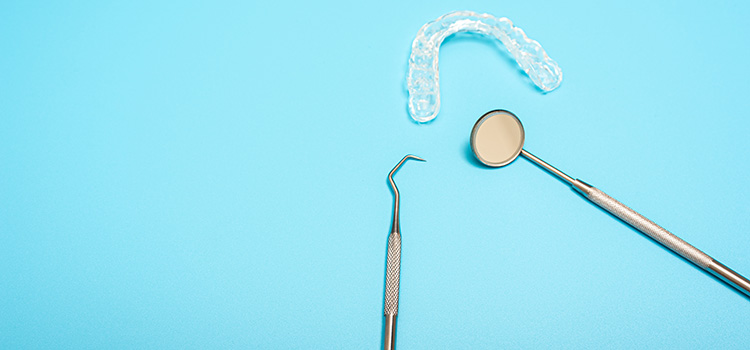
Symptoms of Bruxism
People who are either dealing with a mild case of bruxism or have been grinding for a short time are likely to experience certain symptoms. Patients who have severe bruxism or who have been battling the condition for longer may find themselves facing more severe consequences. It's also worth noting that bruxism often goes hand in hand with other sleep disorders. Here's what to expect:
- Short-term symptoms: If you haven't been grinding for very long or have a mild or moderate case of bruxism, pain can be the first warning sign. Teeth sensitivity and jaw pain are common. However, the pain isn't limited to your mouth. The repetitive movement and stress of grinding can cause soreness, tenderness, and tightness in the muscles of the face, neck, and jaw. You may also experience earaches and tension-type headaches.
- Long-term symptoms: What if your issue is more long-standing or more severe? The symptoms can also be more severe. You may experience obvious tooth damage. Worn enamel, chipped or cracked teeth, and loose teeth are all possibilities. Without intervention, this could escalate to tooth loss. Temporomandibular joint disorder is also a concern. When the hinge joints that allow the jaw to move are damaged by TMJ disorder, pain, jaw dysfunction, and headaches can cause a great deal of misery. In some cases, you may notice a change in the shape of your face. If teeth become worn, the mouth closes differently, and you'll appear older. If the jaw muscles bulk up due to overuse, the jaw looks squarer.
- Sleep disorders: Having a sleep disorder doesn't mean that you have bruxism. However, sleep bruxism is often linked with snoring and other sleep disorders. If you're diagnosed with sleep apnea or a similar condition and have noticed signs of bruxism, it might be worth contacting your dentist to check.
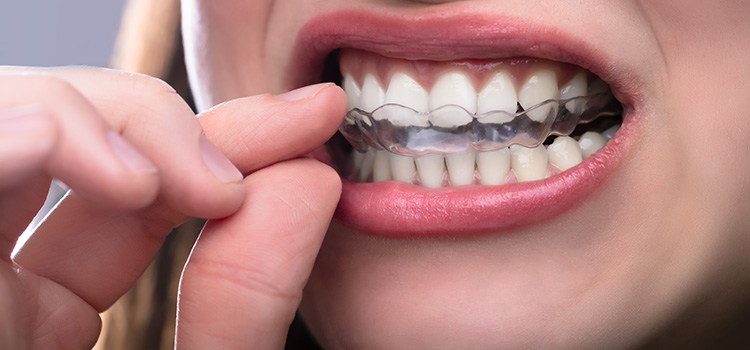
Treatment for Bruxism
Severe bruxism can cause significant pain and set the stage for tooth loss. That makes seeking effective treatment vital. You have a few different options that can be used separately or in combination:
- Night guards: Also called mouthguards or occlusal splints, these oral devices are worn over the top or bottom teeth. Drug-free and easy to use, they create a physical barrier between the teeth. This shields the teeth from grinding and discourages jaw clenching.
- Lifestyle remedies: There's a strong link between stress and bruxism. Embracing lifestyle changes and homeopathic remedies that lower stress like reducing your caffeine consumption and improving your sleep hygiene may be helpful.
- Treatment of underlying conditions: In some cases, depression, anxiety, or a sleep-related disorder is triggering bruxism. In these situations, treating the underlying disorder may also help stop the teeth grinding.
- Medication changes: Bruxism can be a side effect of certain medications. If you're using any medications regularly, ask your healthcare team whether you should consider a change in your regimen.
Related Articles:
If you've noticed worn or chipped teeth and suspect bruxing might be to blame, don't wait. Schedule an appointment with your dentist to discuss your concerns. If your dentist recommends a night guard, be sure to check out the selection at Pro Teeth Guard before you purchase one anywhere else. Why? We offer custom-fit mouthguards online for an affordable price. They're effectively the same mouthguards that you’d receive from a dentist. They're crafted in a professional dental lab using professional materials and processes. Visit Pro Teeth Guard to explore the possibilities.

- Most Popular
- Hard Outside, Soft Inside
- 2MM Thick
- Moderate / Heavy

- Most Durable
- Hard Materials
- 1.5MM Thick
- Heavy / Severe

- For Day Time Use
- Thin, Barely Visible
- 1MM Thick
- Light / Moderate

- For Clenching
- Flexible & Soft
- 1.5MM Thick
- Light / Moderate

